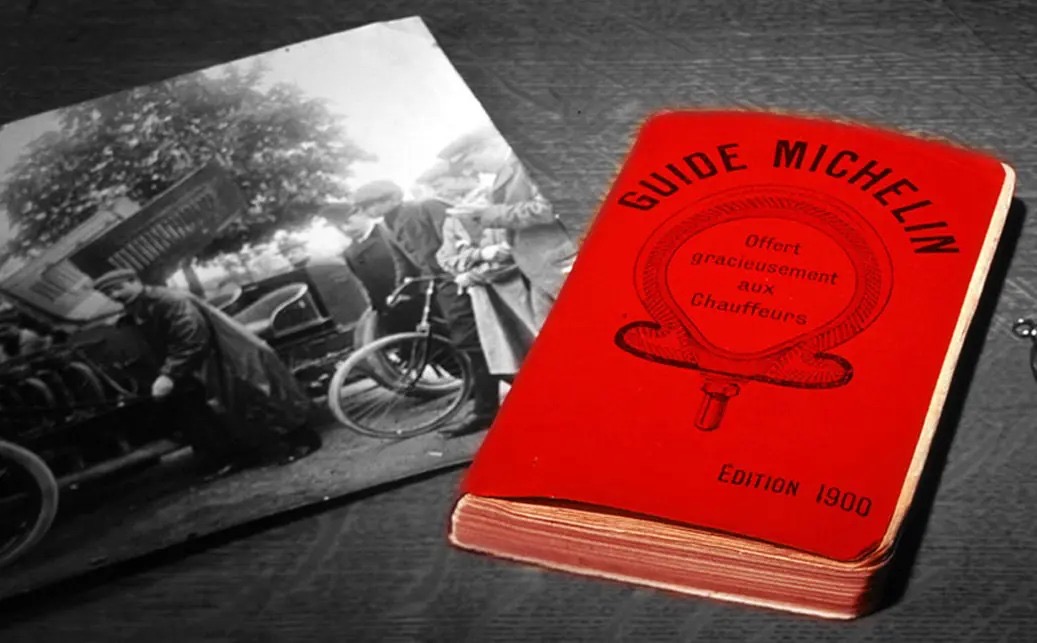Some of the world’s most influential “brands” didn’t begin as cultural movements, luxury signals, or status symbols. They began as simple marketing ideas—ideas so cleverly aligned with human behavior that they transcended their original purpose.
Two of the greatest examples in history are the Michelin Guide and The Guinness Book of Records. And today, their stories offer a roadmap for the next generation of lifestyle brands—including BluWater.
MICHELIN: THE STARS THAT SOLD TIRES
In 1900, the Michelin brothers faced a serious obstacle: barely 3,000 cars existed in all of France. Few drivers meant few road trips, and few road trips meant no demand for new tires.
So Michelin did something unconventional.
Instead of advertising rubber, they promoted adventure. The Michelin Guide was born as a free travel companion, filled with maps, road tips, mechanics, hotels, and eventually—restaurants. The intent was simple:
If people traveled more, they’d drive more.
If they drove more, they’d wear out their tires.
And when they needed new tires, they’d buy Michelin.
When the company later introduced its now-famous star system, it ignited a global dining culture. What began as a marketing tool became the standard of excellence in gastronomy. Michelin didn’t just sell tires; it sold aspiration, taste, and lifestyle.
GUINNESS: THE RECORD BOOK THAT SOLD PINTS
Fifty-five years later, Guinness took a different path to the same destination. In the 1950s, pubs were the original social networks—full of debates about sports, speed, and “who’s the best at what.” Sir Hugh Beaver realized that if pub patrons had facts to settle their arguments, they would:
Talk longer.
Stay longer.
And order more Guinness.
So in 1955, The Guinness Book of Records was created as a free pub giveaway to fuel conversation. It became a sensation, eventually evolving into the most recognizable authority on human achievement in the world.
Like Michelin, Guinness succeeded because it didn’t push product. It elevated the experience where the product lived—and in doing so, became part of culture.
THE SHARED GENIUS
Both brands executed the same masterstroke:
- They didn’t advertise what they sold.
- They celebrated why people gathered, traveled, and explored.
- They became partners in lifestyle, not just providers of goods.
That is the secret: Sell the story, the experience, the emotion—not the product.
THE BLUWATER ANGLE: BUILDING A LIFESTYLE, NOT A LOGO
BluWater is guided by the same principle.
Our brand lives at the intersection of curated experiences, elevated living, and meaningful connection. We are not selling yachts, jets, residences, or travel—we are building the world that surrounds them. The ritual. The feeling. The access. The belonging.
Just as Michelin championed exploration, and Guinness championed conversation, BluWater champions a life well-lived—a lifestyle defined by:
- Memorable journeys
- Shared moments
- Intelligent luxury, not loud luxury
- Experiences that outlast the experience itself
If Michelin’s product was tires—and Guinness’s product was stout—then BluWater’s product is time: time with people who matter, in places that matter, with service that makes it effortless.
Our goal isn’t to be a brand that people use.
It’s to be a brand that people live with, talk about, and identify with.
Because the true power of a brand isn’t when someone buys it.
It’s when someone builds part of their life around it.
FINAL TAKEAWAY
Michelin didn’t set out to control the dining world. Guinness didn’t set out to document humanity’s extremes. They set out to support and enrich the lifestyle that surrounded their product.
BluWater is doing the same—crafting not just offerings, but a culture of curated living, where sea, sky, and story come together in a way that feels effortless, exclusive, and unforgettable.
That is how brands become movements.



